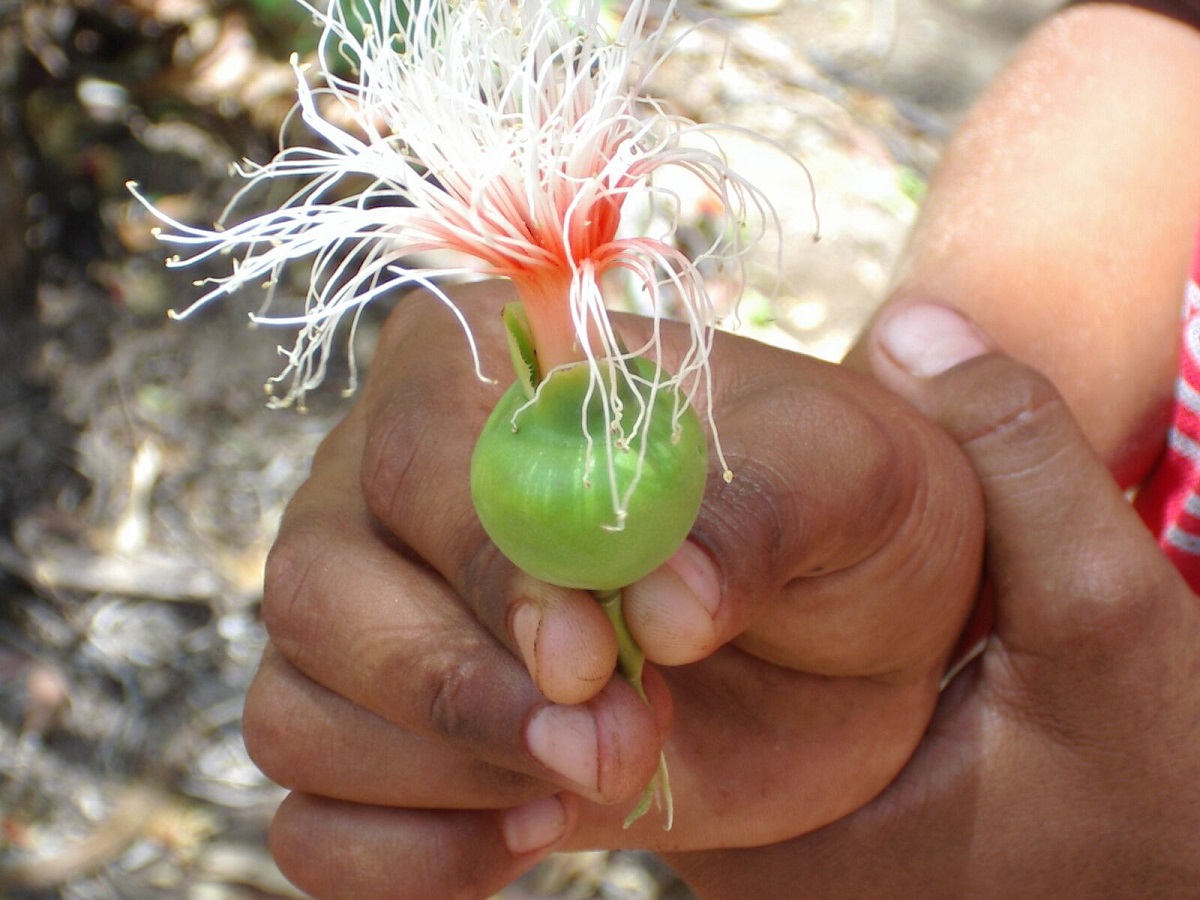
The undocumented colonial history of Indigenous food on Cape York Peninsula in north Queensland is about to unfold under a new, three-year study led by Flinders University.
Entitled ‘Sugarbag and shellfish: Indigenous foodways in colonial Cape York Peninsula,’ the study has been funded by an Australian Research Council Linkage Project grant and will address an important gap in Australia’s history by reinstating Indigenous perspectives of colonisation.
Importantly, the project will trace the role of Indigenous food, labour and knowledge in cultural exchanges between Indigenous people and settler-colonists, an aspect of Australia’s past that has rarely been studied.
“Food was a key medium for communication and negotiation during colonisation in north Queensland,” says archaeologist and Chief Investigator, Dr Michael Morrison, from Flinders University.
Knowing what people ate, how they obtained and shared food, and the factors that shaped and constrained this process provides unparalleled insights into daily life at this time in Australia’s past.
“The Homelands of the northern Peninsula were a microcosm of wider colonial processes in Australia before the Second World War, and included large Aboriginal reserves, Christian missions, cattle stations, goldfields and the iconic Overland Telegraph Line.
“However, there are many inaccurate and negative portrayals of Indigenous people in modern accounts of Cape York – our project partners in the communities around Weipa, Coen and Lockhart River are keen to see this remedied,” Dr Morrison says.
In partnership with local Custodians, the Flinders-led research team will record oral histories, analyse historical records, and look for archaeological evidence of Aboriginal people in the landscape in order to develop new perspectives on both local and global history.
“We will be piecing together a very different story about food and ‘foodways’ by using a wider range of evidence,” says anthropologist and Co-Chief Investigator from Flinders Univeristy, Dr Darlene McNaughton.
“That’s the real power of this project – drawing from oral history, anthropology and archaeology to reveal a new narrative of colonial life in the early twentieth century.”
The project has received strong support from a range of local Indigenous organisations and leaders in the wider Weipa region.
The Western Cape Communities Central Sub-Regional Trust (Weipa) and the Queensland Museum have also made major investments in the project.
Mr Geoffrey Fahey, Executive Officer of the Western Cape Communities Trust, says that “Traditional Owners and Directors of the Trust consider that projects such as this are vital for the preservation of Aboriginal Culture on the Western Cape”.
“The findings of this study will assist with accurate recording of activities on the Cape and provide future generations with authentic information about their ancestors”.
Mr David Claudie, Kuuku I’yu Custodian and Director of the Chuulangun Aboriginal Corporation, who is also part of the project team, says that “This project is unique in that the Traditional Custodians involved are working in real partnership with western scientists”.
“We are equal participants in leading the research; we are not just the subjects of anthropological and archaeological inquiry as we so often have been in the past.
“I am grateful to all the collaborating partners for undertaking a project of such significance for our region and for the world,” says Mr Claudie.
The team will work with rangers from the Napranum Aboriginal Shire Council and the Chuulangun Aboriginal Corporation to conduct heritage surveys, interviews and excavations using cutting-edge methods including Unmanned Aerial Vehicles (UAVS or drones), geophysical surveys, remote sensing and 3D modelling.
Over 500 artefacts from the region, held at the Queensland Museum in Brisbane, will also be analysed, recorded in 3D, and made available to community members who wish to do their own research.
Many of these items are also related to food.
Acting CEO at the Queensland Museum, Dr Jim Thompson, says that “It is wonderful to contribute to research that will use the collections held in the Queensland Museum to generate inclusive understandings of Indigenous Australian history through Indigenous-led narratives.”
The project is being led by Dr Morrison, Dr McNaughton and Mr Claudie. Other investigators include Associate Professor Heather Burke and Dr Ian Moffat, also from Flinders; Associate Professor Shawn Ross and Dr Adela Sobotkova from Macquarie University; and Dr Brit Asmussen Senior Curator at the Queensland Museum.
The ‘Sugarbag and shellfish’ project has received $301,254 from the Australian Research Council and top-up funds and in-kind contributions of $423,413 from community partners, including the Western Cape Communities Trust; Chuulangun Aboriginal Corporation; Napranum Aboriginal Shire Council; the Queensland Museum; and Flinders University.

